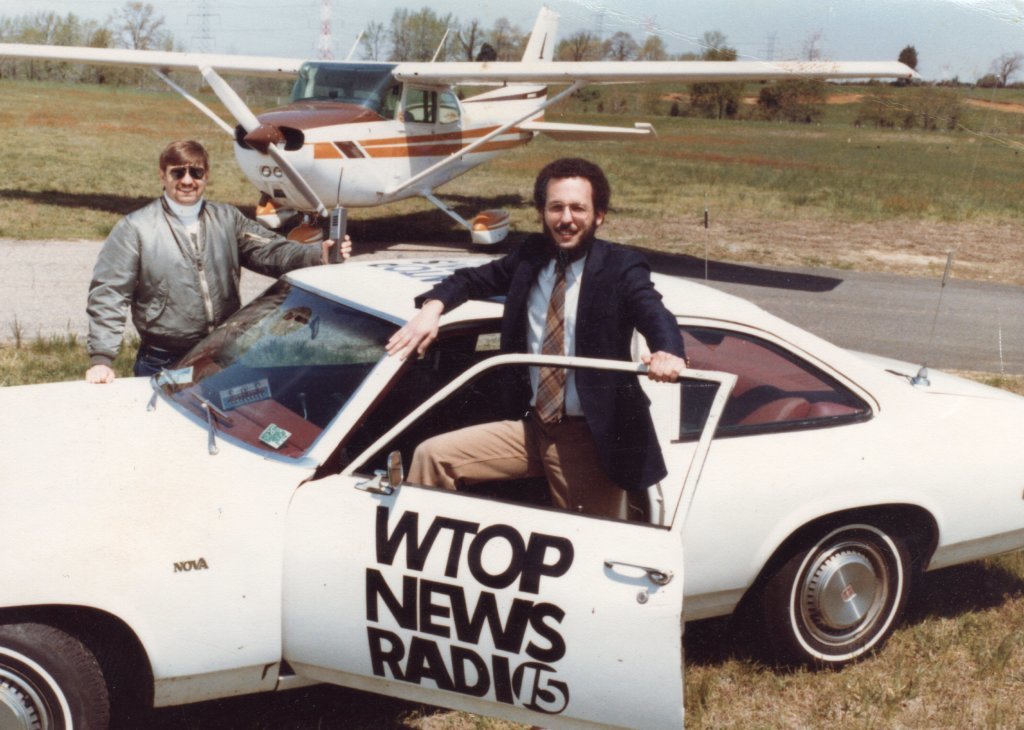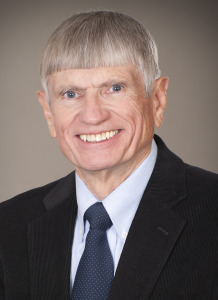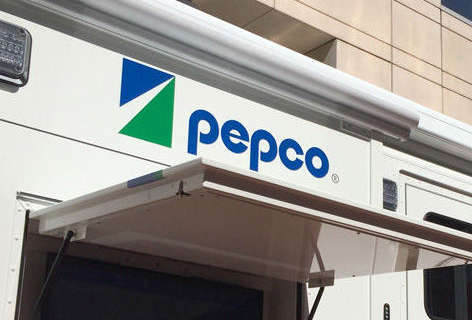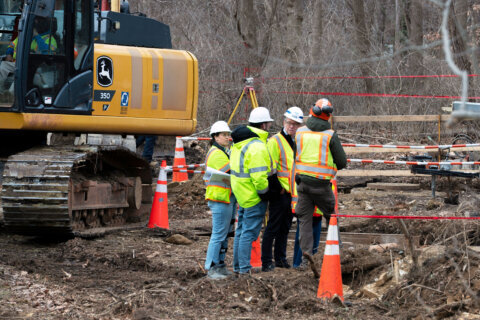
“Self-entitled jackasses” of the D.C. area, you can breathe easy: Bob Marbourg has left the WTOP Traffic Center.
After 40 years, “it is time for me to say goodbye,” the guru of D.C.-area traffic wrote in an email to WTOP staff Wednesday morning.
Marbourg recalled that he got his start at WTOP thanks to a plane crash: WTOP reporter Steve Thompson and pilot Bernard Wicker were in a Cessna that ran out of fuel and landed in a tree in Vienna, Virginia. Both survived, but were seriously hurt. Marbourg got the call from WTOP and “reported from my dining room on a wired landline,” he said.
For the next 10 years, however, he reported on the traffic, undaunted, from another Cessna: “two hours in the morning and two hours in the afternoon. That was all there was of rush hour, then!”

“Bob has been a commuter’s best friend almost since the Beltway was built,” said Mike McMearty, WTOP’s director of news and programming. “From answering the phone to get listener tips, to his calling out officials doing road work during rush hours, to calling out motorists as ‘self-entitled jackasses’ for driving the wrong way on the shoulder, Bob has made it his mission to make sure everyone in our area made it to work safely and got home for dinner safely.”
Rush hour is a lot more than two hours in the morning and afternoon nowadays, and that’s just on normal days. Several WTOP reporters and editors said Marbourg shined even more on the days when the unexpected happened.
Digital Editor Colleen Kelleher immediately remembered an incident where a man stood on the Wilson Bridge, threatening to jump off, on a Wednesday afternoon in November 1998. Traffic all across the region was backed up for 20 miles.
Marbourg “literally stayed on the air until they cleared it up” after more than six hours. “He was our only source of real news for the people who were stranded that day,” Kelleher said.
‘We have him to thank’
Dave Dildine worked alongside Marbourg in the Traffic Center for nearly 10 years and said, “I have a lot to be thankful for, because of everything he’s taught me over the years.”
“Anyone who has battled with the region’s traffic jams over the decades has him to thank, because they have his voice on WTOP in their toolkit,” Dildine said.
He rattled off a series of traffic events going back more than 30 years — the Veterans Day snowstorm of 1987, the Interstate 95 tanker explosion of 2004 and the rush-hour ice storm of 2016. “There’s no one else who could have taken that much havoc and crafted it into something that gave our listeners solace,” Dildine said.
Marbourg could often sound like he was taking the traffic personally and, in a way, he was, Dildine said, remarking on the “at-times floundering DOTs responsible for mismanaging the traffic flow.”
After the 1998 Wilson Bridge incident, Marbourg was quoted in The Washington Post as saying, “This just gives us a taste of what life will be like if this bridge crumbles,” referring to a yearslong effort to replace the aging bridge.
The traffic master knew where the “sensitive points” were, both on the roads and in the bureaucracy in charge of maintaining and repairing them, Dildine said, and he could give people alternative routes to get out of traffic.
But even when he couldn’t, “he was able to give you a sense of why it was happening, and an appreciation for the fact that someone was aware of why it was happening,” Dildine said.
He added, “I’m not sure if anyone understands how grueling real traffic reporting is.”
“I’m not talking about reading an outdated list of incidents. … I have him to thank for being able to do it as effectively as I have up until now. … I think I speak for everyone when I say that we have him to thank for many, many things.”

Breakdown
WTOP General Manager Joel Oxley broke the journalist’s commandment not to make the news one summer Friday years ago, and he remembered on Wednesday that Marbourg was right on the case.
“My car broke down in Tysons and blocked two lanes of traffic on [Virginia] Route 123 — right in front of the mall! By the time I got across the street to the counter at the gas station, I, of course, heard Bob reporting on the traffic mess I had caused, and telling people how to get around it.”
It was uniquely stressful for Oxley, but all in a day’s work for Marbourg.
“Just as he did that day, no one has guided more people to work and home safely and more quickly than Bob,” Oxley said. “He has done absolutely invaluable work, whether it was helping someone on their commute, or in an emergency. His 40 years here at WTOP are a testament to that. I feel incredibly fortunate and honored to have worked with him for so long.”
Marbourg was inducted into the D.C. Hall of Fame of the Society of Professional Journalists in 2015.







